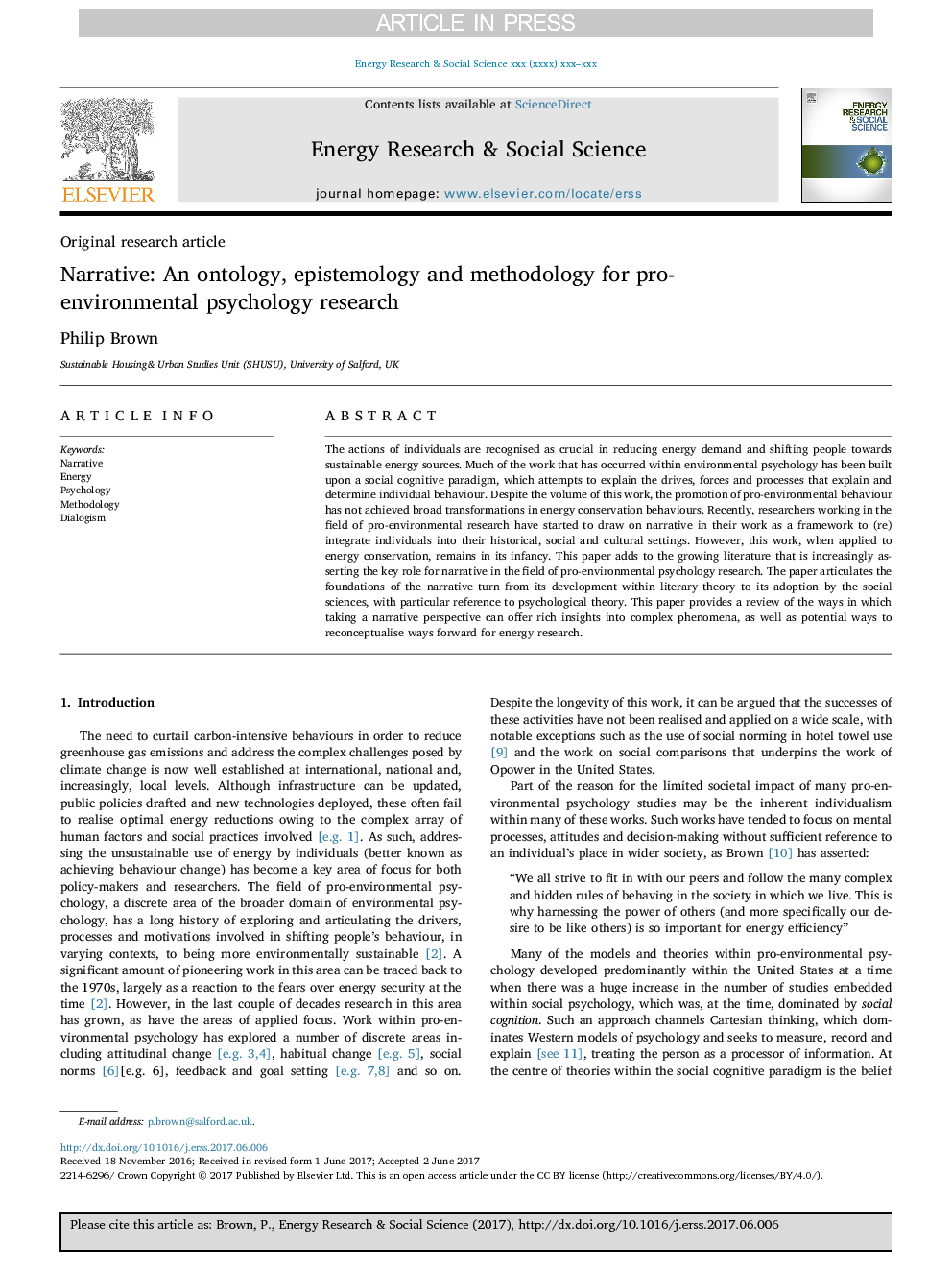ترجمه فارسی عنوان مقاله
روایت: هستی شناسی، معرفت شناسی و روش شناسی برای تحقیق روانشناسی محیط زیست
عنوان انگلیسی
Narrative: An ontology, epistemology and methodology for pro-environmental psychology research
| کد مقاله | سال انتشار | تعداد صفحات مقاله انگلیسی |
|---|---|---|
| 107398 | 2017 | 8 صفحه PDF |
منبع

Publisher : Elsevier - Science Direct (الزویر - ساینس دایرکت)
Journal : Energy Research & Social Science, Volume 31, September 2017, Pages 215-222
ترجمه کلمات کلیدی
روایت، انرژی، روانشناسی، روش شناسی، گفت و گو،
کلمات کلیدی انگلیسی
Narrative; Energy; Psychology; Methodology; Dialogism;
ترجمه چکیده
اقدامات افراد در کاهش تقاضای انرژی و انتقال مردم به منابع انرژی پایدار به عنوان حیاتی شناخته شده است. بخش عمده ای از کارهایی که در روانشناسی محیط زیست اتفاق افتاده است بر پایه یک پارادایم شناختی اجتماعی استوار است که تلاش می کند تا راندها، نیروها و فرایندهایی را که توضیح و تعیین رفتار فردی را توضیح می دهند، توضیح دهد. علیرغم حجم این کار، ارتقاء رفتار محیطی محیطی تغییرات گسترده ای در رفتارهای حفاظت از انرژی نداشته است. به تازگی، محققانی که در زمینه تحقیقات محیط زیستی کار می کنند، در کار خود به عنوان یک چارچوب برای (مجدد) ادغام افراد در محیط های تاریخی، اجتماعی و فرهنگی خود، روایت را به کار برده اند. با این حال، این کار، هنگامی که به حفاظت از انرژی اعمال می شود، در دوران کودکی اش ادامه دارد. این مقاله به ادبیات در حال رشد افزوده می شود که به طور فزاینده ای نقش کلیدی روایت در زمینه تحقیق روانشناسی محیط زیستی را تأیید می کند. این مقاله مبانی نوشتاری روایت را از توسعه آن در تئوری ادبی تا تصویب آن توسط علوم اجتماعی با اشاره خاص به نظریه روانشناختی بیان می کند. این مقاله مرور روشهایی را ارائه می دهد که دیدگاه روایت می تواند بینش های غنی از پدیده های پیچیده و همچنین روش های بالقوه برای پیش بینی آینده راه حل های تحقیق انرژی را ارائه دهد.

